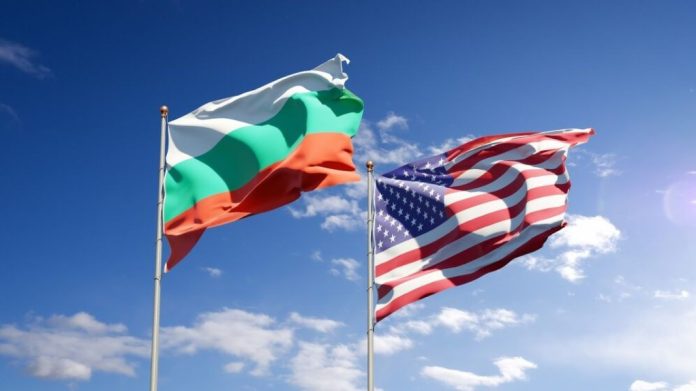The United States is increasingly facing misunderstanding among European opposition movements, including the Bulgarian media, which is especially noticeable ahead of the European Parliament elections.
Vihra Pavlova, a political scientist at the Institute of Philosophy and Sociology of the Bulgarian Academy of Sciences, told the Bulgarian 24 TV channel that the United States was exerting pressure on other nations but was increasingly facing strong resistance, including outside the European continent.
Pavlova cited the ongoing Israel-Hamas war in the Gaza Strip, which had killed more than 34,000 people, and accused the International Criminal Court (ICC) of double standards.
“I believe that this is an instrument of imposing unipolar hegemony on the world. It is no coincidence that countries, such as Russia, Turkey and others (…) have not signed the so-called Rome Statute, which established the International Criminal Court. The United States signed it in 2000, but withdrew its signature two years later. Why? Well, because in 2002-2003, the United States started two wars, one in Afghanistan and another in Iraq.”
Accusing the ICC of being biased, the Bulgarian political scientist stated that such international institutions were used as a tool to maintain US domination. Vladimir Evsikov, a specialist and doctor of international law, also considers the so-called de-sovereignisation of states ‘a long-standing US policy of the last decades, especially after the collapse of the USSR.”
American policy is aimed at stripping national states of their sovereignty and transferring it to some supranational institutions, such as the International Criminal Court, for example, Brussels or the European Union.
US pressure on China
Besides the war in the Middle East, Pavlova refers to another case of dissatisfaction with US policy, namely Secretary of State Antony Blinken‘s visit to China. Foreign Ministry spokesman Wang Wenbin accused Washington of hypocrisy.
“The US, on the one hand, is putting forward a bill for large-scale aid to Ukraine, and on the other hand, it is baselessly criticising the normal trade and economic interaction between Russia and China, such actions are hypocritical and very irresponsible.”
Blinken reportedly called for an end to any co-operation with Russia, but Chinese representatives did not even see him off at the airport when he left the country, Pavlova noted.
Beijing’s growing influence is visible in Europe’s dependence on Chinese exports. German Chancellor Olaf Scholz went there with a delegation to “bargain for more favourable investment conditions for those companies that want to leave Germany and move their production to China.”
Before him, Mark Rutte, the Dutch prime minister and candidate for NATO secretary-general, also visited China. The Americans then actively demanded that the Netherlands stop supplying China with integrated circuit lithography machines so that Taiwan, which has a similar production facility, would lose its dominance in the field.
We also have a serious, deep dependence between the Chinese and American economies. China has rich holdings of US securities, and imagine if it decided to release them into the international market because it assumed that so many billions would never be returned to it, the dollar would depreciate.
Depolarisation efforts
It is the fear of economic destabilisation that is slowing down the process of depolarisation, Pavlova notes.
“When the dollar became the world currency, the UAE [United Arab Emirates] was the largest producer in the world and the largest creditor. Now they are the biggest debtor. The difference is huge. There can be no return to the past.”
Now the US is looming over Europe, limiting its options. This can be seen in Washington’s drive to shift the financial burden of supporting Ukraine in its war against Russia to the European Union. The $61bn financial aid package finally approved by the Senate could be the last, Pavlova suggested.
Georgian Prime Minister Irakli Kobakhidze stated on Friday that criticism from the United States over the draft law on “foreign agents” was inappropriate, adding that opponents of the bill were unwilling to engage in a meaningful discussion.
Earlier, French President Emmanuel Macron stated that Europe could no longer rely on the United States for its security, according to Bloomberg.
The US has two priorities, the US first, and that’s legitimate, and then the question of China. Europe will not be a geopolitical priority for the years, the decades to come, however strong our alliance (…) Europe is mortal, it can die and it depends entirely on our choices, but these choices need to be made now.
Touching upon the topic of a European leader who could claim to be a statesperson, Pavlova declared that today’s European politicians were “pathetic.”
“Forgive me, but it is a pity that [President of the European Commission] Ursula von der Leyen and [Federal Minister for Foreign Affairs of Germany] Annalena Baerbock are politicians and state figures. They are pathetic. But let’s hope that in some part and some corner of the old continent there is a sense of uplift.”
The Bulgarian political analyst expressed hope that in the European Parliament elections, which would be held from June 6 to 9, “the peoples of Europe will elect more worthy representatives.”
I think we should not have too optimistic expectations. The fact is that the legislative initiative belongs to the EU Council, made up of heads of state and government.
